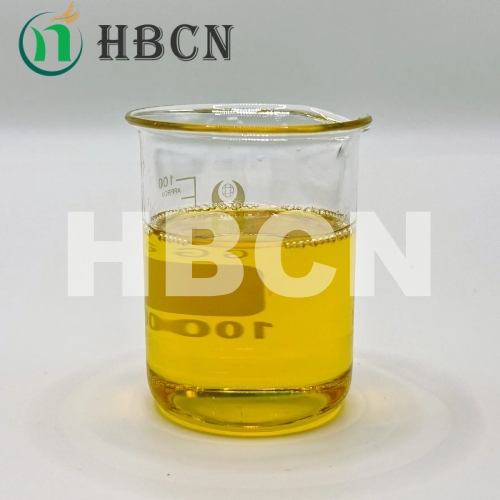
Nov . 10, 2024 00:56 Back to list
Exploring the Affordable Effects of Mesotrione in Agricultural Applications
Understanding the Activity of Cheap Mesotrione in Modern Agriculture
Mesotrione, a selective herbicide, has emerged as a pivotal tool in modern agriculture, particularly in the management of broadleaf weeds in various crops, including corn. The increasing interest in cost-effective agricultural solutions has led to a rise in the demand for cheap mesotrione options among farmers and agricultural enterprises. This article aims to explore the activity of mesotrione, its mechanisms of action, benefits, and the factors influencing its cost-effectiveness.
What is Mesotrione?
Mesotrione is a systemic herbicide that belongs to the triketone class of chemicals. It is primarily utilized for controlling broadleaf weeds and some grassy weeds in certain crops. Mesotrione works by inhibiting the enzyme 4-hydroxyphenylpyruvate dioxygenase (HPPD), which plays a crucial role in the synthesis of carotenoids. By disrupting this pathway, mesotrione ultimately leads to the chlorosis and death of targeted weeds.
Mechanism of Action
The efficacy of mesotrione derives from its specific mode of action. The inhibition of HPPD disrupts the formation of carotenoids, which are vital for photosynthesis and protecting plants from oxidative damage. Without carotenoids, plants become more susceptible to light-induced stress, leading to a rapid decline in their health and eventual death. This selectivity allows mesotrione to effectively target broadleaf weeds while causing minimal damage to crops like corn, making it an essential component of integrated weed management strategies.
Benefits of Using Mesotrione
1. Effective Weed Control Mesotrione offers rapid and effective control of various broadleaf weeds, including species that are resistant to other herbicides. This effectiveness is crucial in maintaining crop yield and quality.
2. Selective Usage One of the significant advantages of mesotrione is its selective nature. Farmers can apply this herbicide in designated crops without harming the plants they intend to protect, which is vital for successful agricultural practices.
3. Resistance Management By incorporating mesotrione into weed management regimes, farmers can help delay the development of herbicide-resistant weed populations. Its unique mode of action serves as an important tool in rotation programs, potentially reducing reliance on other more traditional herbicides.
cheap mesotrione activity

4. Ease of Application Mesotrione can be applied both pre-emergence and post-emergence, providing flexibility in timing for farmers. This adaptability is essential for managing different agricultural practices and varying weed pressures.
Cost-Effectiveness of Mesotrione
The term cheap mesotrione reflects a growing trend among agriculture stakeholders to seek affordable yet effective herbicide solutions. The cost of herbicides can significantly impact a farm's profitability. Therefore, understanding the factors contributing to the affordability of mesotrione is essential.
1. Bulk Purchasing Farmers can reduce costs by purchasing mesotrione in larger quantities. Bulk buying often results in a significant discount per unit, making it more affordable.
2. Generic Options The market for agricultural chemicals has expanded to include generic formulations of mesotrione, which can be substantially cheaper than brand-name products while still providing the same efficacy.
3. Integrated Weed Management By using mesotrione as part of a comprehensive weed management strategy that includes cultural practices, mechanical removal, and other herbicides, farmers can reduce overall costs and enhance the sustainability of their practices.
4. Environmental Considerations Effective weed control using mesotrione can lead to better yields and less crop loss, ultimately offsetting the costs associated with herbicide application. Moreover, utilizing targeted herbicides can minimize the environmental impact, leading to sustainable farming practices that future-proof agricultural systems.
Conclusion
Cheap mesotrione offers an effective solution for managing broadleaf weeds in crops like corn, enabling farmers to maintain high yield and quality while managing costs effectively. Understanding its mechanism of action, benefits, and cost-saving strategies allows farmers to make informed decisions regarding their weed management practices. As the agricultural landscape evolves, mesotrione remains a vital component of sustainable farming, balancing efficacy with economic considerations. Through continued research and development, the future of mesotrione and its generics promises to be an integral part of modern agriculture.
-
Herbicide Mesotrione: Advanced Herbicide Solutions for Corn Field Weed Control
NewsJul.12,2025
-
Buy Penoxsulam Herbicide - Selective Weed Control Solution for Lawns & Crops
NewsJul.08,2025
-
Malathion and White Oil Effective Insecticide for Citrus & Ornamentals
NewsJul.08,2025
-
Best Section Fungicide Solutions Effective Carbendazim & Copper Fungicides for Citrus Trees
NewsJul.08,2025
-
Types of Herbicides Explained Discover 5 Types of Selective Herbicides for Effective Weed Control
NewsJul.07,2025
-
Buy Bifen Chemical – Safe Termiticide for Dogs & Effective Pest Control Solutions
NewsJul.07,2025
